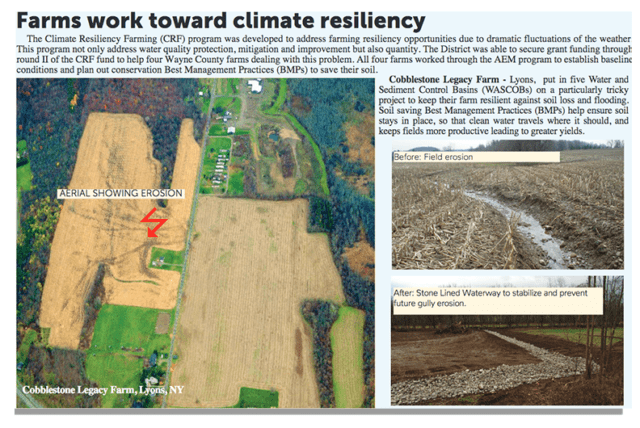Are you ready? The 2025 Wayne County Envirothon will be held at the Montezuma Audubon Center on Thursday April 27th. Envirothon is an annual competition in which teams compete by demonstrating their knowledge of environmental science and natural resource management. Teams, each consisting of five students from schools, home study groups and environmental clubs, exercise their training and problem-solving skills in a competition centered on five testing categories: Soils/Land Use, Aquatic Ecology, Forestry, Wildlife, and Current Environmental Issues.
Water Quality Updates: Summer 2022
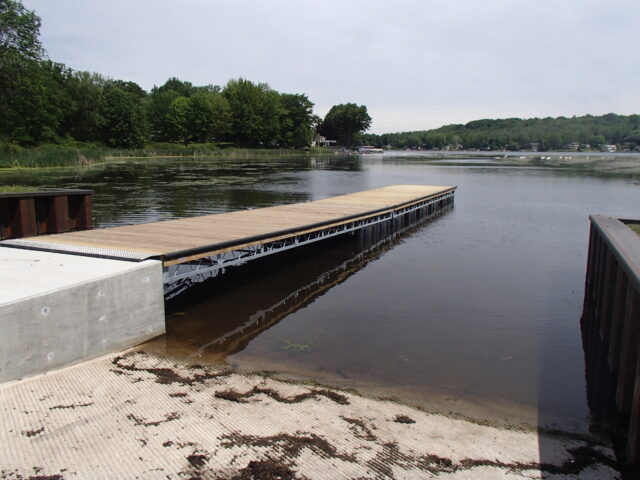
New York State Fishing Access Site’s new floating dock system at Port Bay South, June 2022
Water Quality continues to be a concern due to changing weather, and temperatures, through watershed management. Throughout the summer of 2022 until Columbus Day, District staff will be reviewing water quality and positing updates if there are specific concerns on the waterfronts and how to manage them throughout Wayne County. Watersheds are the entire area that supplies water to a waterbody. This can potentially make up 1000s of acres of land with various topography, and use. Water quality update reports will include descriptions based on weather patterns, temperature, what you are seeing in the water, invasive species and local water quality projects.
The District monitors water quality across Wayne County throughout the year and tried to address targeted issues that have been brought up by the communities. One of the positives from the COVID response was the District’s Landowner Assistance Program (LAP forms) and Municipal Assistance Program (MAP forms) that are available online to help target and narrow down issues. This form is fillable and allows the landowner or municipal leader to upload a request and photos in real time from our Website.
This report allows us to see where review is needed. The LAP/MAP program is for technical review by trained technicians. It is not a grant program. The District staff will review the site through technical maps, permitting needs and water quality considerations and then will follow up with the requestor by email or by phone depending on the initial review findings. On a rare case, there may be a request for an on-site visit. This process may take 2-3 weeks depending on the amount of requests that come in at once.
The District’s Technical Staff is made up of 5 people that have made community water quality their professional career. They focus on the “bigger picture” of watershed management while working to address the water quality impacts of the local community.
Great Backyard Birdcount
The Great Backyard Bird Count starts tomorrow, February 17th and runs through the 20th. The Backyard Bird Count is a four day annual event, the world comes together for the love of birds!! The Backyard Bird Count is a four day annual event, the world comes together for the love of birds!! Over these four days the public is invited to spend time in their favorite places watching and counting as many birds as they can find and report them. These observations help scientists better understand global bird populations before one of their annual migrations. Visit Cornell Labs for reporting and more information. https://www.birdcount.org/[/su_column]
March is Ag Month
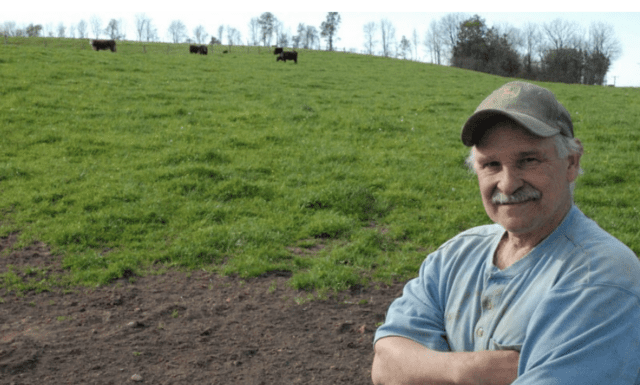 Every March we celebrate spring and agriculture in New York State! Over the next few weeks we’ll focus on different agriculture practices and BMPs. Agriculture is part of our history, heritage, and values, and continues as an important part of our
Every March we celebrate spring and agriculture in New York State! Over the next few weeks we’ll focus on different agriculture practices and BMPs. Agriculture is part of our history, heritage, and values, and continues as an important part of our
culture and rural economy. Ag month is a the perfect opportunity for all of us to better appreciate agriculture’s breadth and beauty!
Pictured above, Steve Olson, of Hidden Canyon Farm, Steve and Susan Olson own and operate a 40 cow/calf beef farm, specializing in high quality meat production located in Lyons, NY
Climate Resilient Farming Grant Program
$28.5M will be provided through the Climate Resilient Farming Grant Program and the Agricultural Non-Point Source Abatement and Control Program
Climate Resilient Farming Grant Program helps farms reduce their operational impact on the environment and address the impacts of extreme weather events resulting from climate change. This is Round 7. The program offers $15 million and up from $8 million in the last round of the program. The program is designed to help farmers implement agricultural projects and make related equipment purchases that reduce greenhouse gas emissions, and support soil health and improved water quality. Projects will also help agricultural producers prepare for and better manage impacts of climate change, including increased heavy storm events, overall rainfall, and periods of drought.
According to NYS Ag and Markets, this year’s program emphasizes precision feed management and agroforestry, two best management practices that are identified in the New York State Climate Action Council’s Scoping Plan as critical to helping increase carbon sequestration and reduce greenhouse gases on farm.
The Climate Resilient Farming Grant program eligibility has also been expanded by updating the definition of a farm operation to include urban agriculture and non-traditional operations. Urban agriculture is an increasingly important focus area for the Department as it continues its work to grow a more resilient food supply system. In addition, new and beginning farmers are being prioritized for this funding opportunity.
For more information, and to see if you qualify contact Ian or Ron at 315-946-7200
We’re Rooting for you Mark! – Finalist for AEM-Leopold Conservation Award!
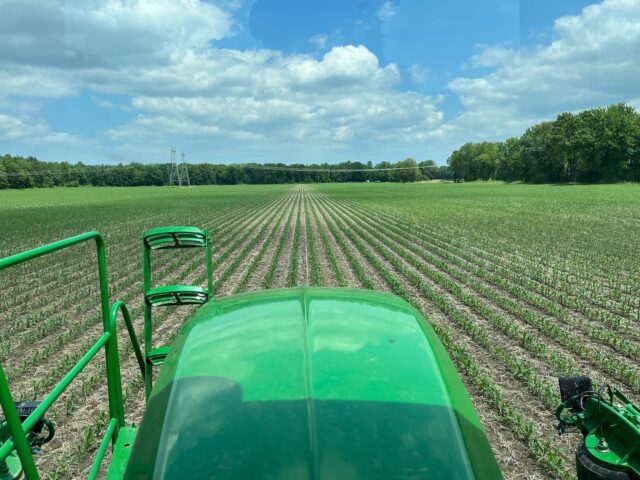 The NYS Department of Agriculture and Markets announced the three finalists have been selected for New York’s AEM-Leopold Conservation Award!
The NYS Department of Agriculture and Markets announced the three finalists have been selected for New York’s AEM-Leopold Conservation Award!
Dygert Farms Creamery (Montgomery County, NY), Humbert Farms (Wayne County), and Tongore Farm, Olivebridge, NY. (Ulster County)
All three family operations that demonstrate exemplary commitment to agriculture conservation. Their dedication and leadership implementing conservation practices not only help provide economic and environmental benefits to their farm but also to the communities in which they farm, protecting the valuable land and water resources of New York State.
Congratulations to these finalists for what is already a tremendous accolade, and look forward to continuing our celebrations when we we join with the Sand County Foundation to award the AEM-Leopold Conservation Award later this year!
We’re rooting for you Mark Humbert!
Finger Lakes National Heritage Area Feasibility Study
The National Park Service (NPS) today delivered the final Finger Lakes National Heritage Area Feasibility Study to Congress. The feasibility study determined that the 14 county study area in the Finger Lakes region of New York state meets the congressionally established criteria to be eligible for inclusion as part of the National Heritage Area System. The counties included in the study area included Wayne, Cayuga, Chemung, Cortland, Livingston, Monroe, Onondaga, Ontario, Schuyler, Seneca, Steuben, Tioga, Tompkins, and Yates.
The study found that Central New York’s landscape is nationally important for its association with the distinct geological formations of the Finger Lakes.
This is a very large PDF document (56m), but you can download here: Click Here
Cover cropping, Irrigation system management and the promotion of pollinator habitat.
The District is pleased to announce funding to help with cover cropping, Irrigation system management and the promotion of pollinator habitat.
We’re Hiring
Job posting for a CONSERVATION DISTRICT PUBLIC RELATIONS SPECIALIST (Soil & Water)
DISTINGUISHING FEATURES OF THE CLASS: This position is responsible for performing public relations duties and supervising the dissemination of information in a Soil and Water Conservation District. The work involves responsibility for editing and preparing written material for publications. The work requires imagination and a demonstrated flair for writing and visual presentation of informational materials. The incumbent receives general direction from the District Manager with leeway provided for the use of independent judgment; does related work as required.
TYPICAL WORK ACTIVITIES: (Illustrative only)
• Prepares written communications for public relations publications and press releases;
• Writes, composes, lay-out and arranges for publication of SWCD newsletters, news releases and other publications; in addition to organizing the mailings;
• Collaborates with community groups and school districts; support groups to plan workshops and special events in relation to conservation issues;
• Writes news releases and take photographs for all local newspapers/TV/radio for media coverage of District programs;
• Vigorously publicizes conservation achievements including performances, exhibitions, displays, dedications and recognitions;
• Develops, reviews and edits materials for District website and Social Media;
• Develops ways to bring conservation into the Wayne County school programs and bridges the education to co-curricular involvement in Envirothon programs.
FULL PERFORMANCE, KNOWLEDGES, SKILLS, ABILITIES AND PERSONAL CHARACTERISTICS: Good knowledge of Microsoft Office, Adobe Acrobat or other document creation/software communication programs; Good knowledge of publicity principles and methods; good knowledge if various photography and computer programs used in publishing; good knowledge of the organization, objectives and content of the Soil & Water Conservation District program; good knowledge of organizations and publications interested in the needs of community conservation; strong interpersonal and verbal communication skills including the ability to communicate to people in a concise and clear manner; ability to write, evaluate and edit the content, structure, grammar and format of a range of written material; ability to establish and maintain good working relationships with members of the press, television, radio and other publicity media; ability to get along well with others; initiative and resourcefulness; physical condition commensurate with the demands of the position.
MINIMUM QUALIFICATIONS: Valid NYS Drivers License; and either:
1. Graduation from a regionally accredited college or university or one accredited by the New York State Board of Regents to grant degrees with an Associate’s Degree in English, Journalism, Communications, Public Relations, Marketing or a related field and one (1) year of satisfactory experience in journalism, communications, public relations or marketing; or
2. Graduation from high school or possession of an equivalency diploma and three (3) years of experience as detailed in (1) above. Approved and adopted 11/25/15
DOWNLOADABLE DOCUMENTS (right click to download) Documents open in the same window.
Novel Coronavirus Prevention & Control for Farms
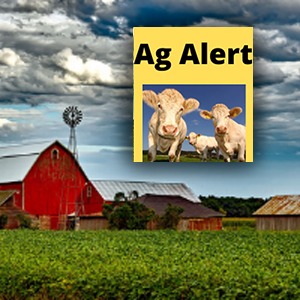 The U.S. is confronting an outbreak of a novel coronavirus that causes serious respiratory disease and may be deadly for older people and those with weakened immune systems. The World Health Organization is now calling the outbreak a global pandemic because it is affecting countries all over the world. People and organizations can still fight coronavirus by taking steps to prevent transmission of the disease, the whole point of widespread cancellation of events is to create “social distancing” to lower the infection rate and prevent health care systems from being overwhelmed. New York State Department of Health also has a Coronavirus Website with English and Spanish posters for preventing coronavirus infection (https:/health.ny.gov/diseases/communicable/coronavirus/).
The U.S. is confronting an outbreak of a novel coronavirus that causes serious respiratory disease and may be deadly for older people and those with weakened immune systems. The World Health Organization is now calling the outbreak a global pandemic because it is affecting countries all over the world. People and organizations can still fight coronavirus by taking steps to prevent transmission of the disease, the whole point of widespread cancellation of events is to create “social distancing” to lower the infection rate and prevent health care systems from being overwhelmed. New York State Department of Health also has a Coronavirus Website with English and Spanish posters for preventing coronavirus infection (https:/health.ny.gov/diseases/communicable/coronavirus/).
The U.S. Centers for Disease Control and prevention (CDC) provides clear guidance about preventing infection in both English and Spanish. They also provide a number of printable factsheets and posters in English and Spanish suitable for use in the workplace. (Download at: https://www.cdc.gov/coronavirus/2019-ncov/communication/factsheets.html)
Employer Actions Steps
Your farm workforce is not immune to coronavirus, please begin taking steps to protect yourself and your employees.
- Talk with your employees about coronavirus, how it spreads, and how to prevent getting infected.
- Print the CDC factsheets and posters, post in your workplace and employee housing facilities.
- Provide guidance to help employees clean and disinfect employer-provided housing. Follow up with employees and manage the process to be sure that this happens. Set up a regular weekly and daily schedule for cleaning.
- CDC guidance for cleaning homes: https://www.cdc.gov/coronavirus/2019-ncov/community/home/cleaning-disinfection.html
- Clean and disinfect your workplace. The employee breakroom and bathroom are great places for virus to be transmitted. Clean and disinfect any areas where employees congregate or routinely touch items such as doorknobs and computer keyboards. Set up daily and weekly cleaning schedules.
- Provide cleaning supplies such as cleaning solutions, buckets, mops, brushes, etc for cleaning at work and for those living in employer-provided housing. (CDC list of approved antimicrobial cleaning products: https://www.epa.gov/sites/production/files/2020-03/documents/sars-cov-2-list_03-03-2020.pdf)
- Review your sick leave policy. The first advice for people who are sick is to stay home except to get medical care. Do you provide paid sick leave for your employees? If you do not, will employees feel financially obligated to come to work even if they are sick?
- Communicate with employees that they should stay home if they are sick. Employees sometimes come to work believing they will face punishment or firing if they miss work. Be sure your employees understand that their health and that of their co-workers’ comes first. Communicate and make a plan to cover for sick employees. CDC provides posters in English and Spanish covering symptoms of novel coronavirus.
- Prepare your disaster contingency plan. What will you do if 50% of your employees become sick and unable to work? Are there neighboring farms who might be able to share resources in an emergency? Who will manage for a few weeks if you or another key manager are unable to leave your house or are hospitalized?
- Cornell provides the Extension Disaster Education Network (EDEN) to provide community education resources across the entire disaster cycle of preparedness, response, and recovery.
- Penn State also provides farm disaster preparedness resources.
At minimum, share the guidelines below from New York state with your employees and family.
New York State Department of Health Prevention Tips
While there is currently no vaccine to prevent this virus, these simple steps can help stop the spread of this and other respiratory viruses:
- Wash your hands often with soap and water for at least 20 seconds. If soap and water are not available, use an alcohol-based hand sanitizer.
- Avoid touching your eyes, nose and mouth with unwashed hands.
- Avoid close contact with people who are sick.
- Stay home when you are sick.
- Cover your cough or sneeze with a tissue, then throw the tissue in the trash.
- Clean and disinfect frequently touched objects and surfaces.
_________________________________________________________________________________
By Richard Stup, Cornell University. Permission granted to repost, quote, and reprint with author attribution.
The post Novel Coronavirus Prevention & Control for Farms appeared first in The Ag Workforce Journal

